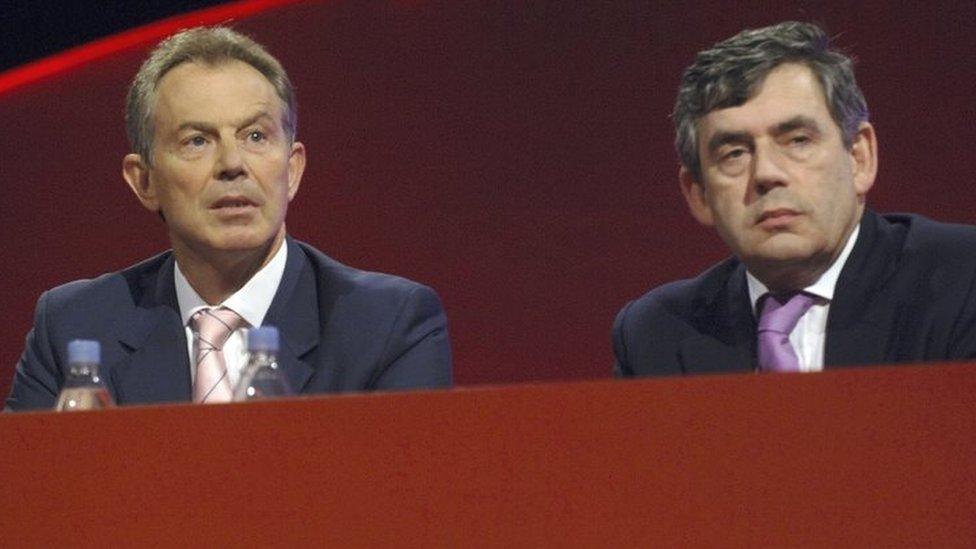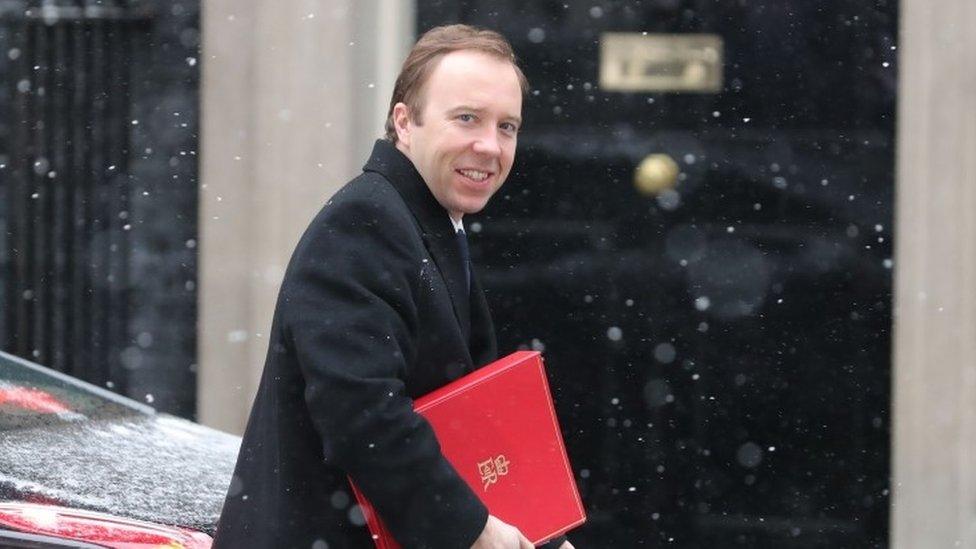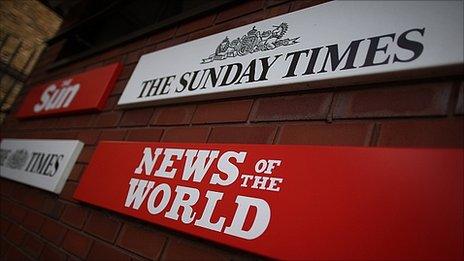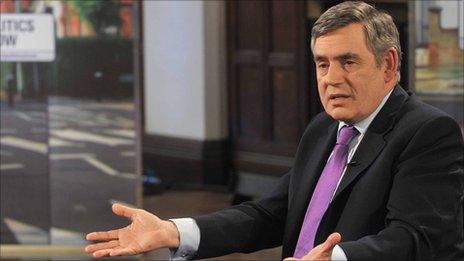Investigator 'targeted politicians' for Sunday Times stories
- Published
John Ford: "I did their bank accounts, I stole their rubbish"
An ex-private investigator who was used by The Sunday Times has spoken about the criminal activity he was involved in to obtain information for the paper.
John Ford said he targeted politicians such as Tony Blair and Gordon Brown when they were in government.
He said his methods included "blagging" or pretending to be a bank or utilities account holder to get information.
The Sunday Times said it "strongly rejects" the claim that it had ever commissioned anyone to act illegally.
Mr Ford claims he was contracted by the paper between 1995 and 2010, during which time he said he targeted members of the Labour government elected in 1997 and members of the public.
'Stolen rubbish'
Asked to describe the nature of his attacks on members of the cabinet, he responded: "Aggressive, unprincipled. Fishing expeditions often."
Talking about the techniques he used to get information, he said: "I did their phones, I did their mobiles, I did their bank accounts, I stole their rubbish.
"Hundreds of telephone interceptions, hundreds of bank interceptions.
"Utilities. I've been through mortgages. I've stolen rubbish. I'm afraid the list is endless."

John Ford said Tony Blair and Gordon Brown were among the politicians he targeted
A spokesperson for The Sunday Times said the paper had "a strong record of investigative journalism over decades and has employed many contributors and researchers to work on stories, or parts of stories.
"The paper strongly rejects the accusation that it has in the past retained or commissioned any individual to act illegally.
"Some allegations related to the research work of John Ford have been aired previously and we cannot comment on the specifics of these new allegations which all predate 2011."
The Sunday Times has also said it has always been its expectation and practice that its contractors work within the law.
Mr Ford said he went after 15-20 members of the cabinet during the New Labour era.
Prescott: I am a Sunday Times 'blagging' victim
John Prescott, who was deputy prime minister between 1997-2007, told BBC Radio 4's Today programme he believes he was targeted.
"I'll be taking legal advice," Mr Prescott said, adding he wanted to find out: "Are these stories true? Did the Sunday Times act in the way that [Ford] now said he did?"
Mr Prescott admitted some stories may be in the public interest, but questioned whether it was right for papers to use private information illegally accessed by private investigators to find them out.
Referring to Ford's admission of using illegal methods to get stories, Mr Prescott said: "He said he did it. I want to know what the truth is - the Sunday Times denied it all the time."
"There are public interest issues [in some stories] - there clearly are. Have they a right, then, to go into the banks? Have they a right to pay somebody as an investigator - not a journalist, an investigator… just to get a news source?"
"Would you have them go into your bank accounts to find how much you get paid?" he asked.
Mr Ford's admissions come just days after the government scrapped the second phase of the Leveson Inquiry.
The first phase of the inquiry looked into the broad area of press ethics and the relationship between the press, politicians, police and the public.
The second phase was withheld in order to avoid prejudicing criminal trials which are now complete.
Explaining his decision to the Commons last week, Culture Secretary Matt Hancock said the second stage should not go ahead because it would be costly and deal with past failures.
Instead, he argued, the more urgent task was to sustain newspapers - particularly local titles - at a time when they are under immense strain.
Victims of press abuse argue that they were promised the second phase by David Cameron when he was prime minister.
- Published1 March 2018

- Published13 July 2011

- Published11 July 2011
